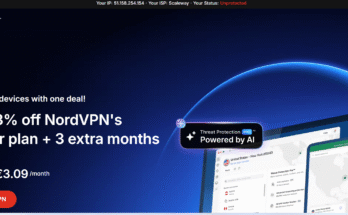In recent years, remote employment practices have seen tremendous growth that has altered how work is done in the traditional office environment, giving professionals across the globe the option to work from anywhere they want. Remote employment has become an attractive and reputable option for all types of workers who want either more work-life balance, a career change, or even avoid the constraints of the office. This guide will provide a roadmap to introduce you to everything you need to know about getting exposed to remote employment opportunities.
Why is Remote Employment So Popular?
Remote work has been popularized by technological advancements, a global shift in work culture, and a willingness for flexible employment. Here are a few reasons it has become a trend:
Increased Flexibility: One of the most obvious advantages is the ability to work wherever you are and at a schedule that fits your life. This flexibility promotes managing work-life balance better.
Wider Global Reach for Opportunities: Remote work allows you to engage with employers or clients across a globe, expanding your potential employer market far beyond your local market.
Work-Life Balance: Between eliminating commute and flexible hours, remote work can give you back time that can be used for personal choices, hobbies, or family pursuits, which can contribute to a healthier balance.
Cost Savings: With neither a need to commute or require an office wardrobe, remote work can save you time and money.
Types of Remote Work Opportunities
Remote now exists in almost every industry and role. If you’re a freelancer, employee, or contractor, more than likely there is a role that matches your background. Common types of remote work include:
- Freelancing: Freelancers are essentially self-employed and work to provide services (writing, graphic Design, software development, etc). Platforms like Upwork, Fiverr, and Freelancer.com have made it easy to look for freelance projects.
- Telecommuting Roles: Companies offer telecommuting roles, where you may work from home but where you are still employed as a full-time employee in some capacity. Examples include companies that work entirely remote (GitLab, Zapier, Buffer) or companies that work hybrid (part-time remote, part-time on-site).
- Gig work: Platforms such as Uber, DoorDash and Postmates offer gig work/short term work/flexible work, which could offer remote admin and/or digital work opportunities.
- Consulting: If you are an expert in your area, consulting is an excellent option for offering services remotely. Many companies may look for specialists to assist on some project or provide ongoing services or consultation related to finance, strategy, human resources, IT, etc. As an expert, you have avenues to help your network with your knowledge.
- Entrepreneurship/Online Business: Many entrepreneurs now have the option to capitalize on the online generation and start their business based entirely on online work. Some popular examples include e-commerce, digital marketing and managed services related to content creation.
Finding Remote Work
Similar to normal job hunting, finding remote work is a combination of research, networking, and applying tools in the right way. Here is your approach to consideration:
1) Job Boards and Websites – Use job boards and websites to find remote work opportunities in your industry. These sites specialize in remote work opportunities – LinkedIn, Indeed. Google trends to find apps/websites that have the search criteria or apply directly to a company.
2) Freelance Platforms- Think of project-based opportunities or clients that contract you as a freelancer. Websites to consider are Upwork, Fiverr, and Toptal.
3) Networking- Use your own network to find opportunities and get direct access to job postings or company job posting sites. Put yourself into conversations and discussion groups or forums – LinkedIn, Facebook, Slack.
4) Company Websites- Many companies will just post remote jobs on websites. Watch for companies that embrace the remote first culture and they will actively source and seek distributed teams.
5) Recruitment Agencies: There are agencies of various size that deal with seeking applicants to fill remote positions with organizations (both local and global). Using an agency for your application(s) may help get opportunities and roles that fit your experience.
Skills You Need to be Successful in Remote Work- Success in remote work is not just about having technical skills to do the job. The company or client, is looking for other traits.
1) Time Management skills – It will be more common to not have a defined working space, and will need to be self-disciplined.
2) Communication Skills – You probably won’t work face to face. Communication in a clear and efficient manner is or primary importance. You should also be familiar with collaboration and meeting tools.
3) Problem Solving- You will likely be working independently, remote work requires you to problem solve.
4 ) Adaptability- There are multiple components to remote work including clients, technology and clients. You will need to be able to adapt to several changes in a short time frame.
5 ) Tech-Savvy: Since remote work is all about technology, being proficient in digital tools, project management software, and other online collaboration systems is highly beneficial.
Remote Workers’ Gear
Utilizing the right tools can vastly enhance productivity and efficiency. Here are some of the most popular tools for remote work:
Remote Work Tools
Using the right tools can greatly enhance productivity and efficiency. Here are some of the most popular tools for remote work.
Project Management Tools: Asana, Trello, and Monday.com help keep the project organized and on track.
Communication Platforms: Slack, Zoom, and Microsoft Teams make it easy to communicate with colleagues and clients real-time.
Time Tracking Tools: Toggl and Clockify let you track your time spent on various tasks or projects.
File-sharing Tools: Google Drive, Dropbox, and Onedrive make it easy to share files and collaborate on them, while making sure everyone involved has access to the documents they need.
The Challenges of Remote Work
Though remote work can be appealing, it is not without its disadvantages. Here are some negative aspects of remote work.
Isolation:
Working remotely can be isolating at times and very lonely, especially if you are someone who thrives off of in-person interaction. Consider finding a co-working space. You may also schedule regular virtual coffee chats with colleagues or friends.
Work-Life Balance:
While there can be benefit to flexibility of remote work, this also creates a potential work-life imbalance. Work can quickly invade your personal time. Establish boundaries and stick to them around working and personal time.
Communication Barriers:
Communication can come into play during remote work. Without face-to-face communication one can sometimes misunderstand messages. It is always better to over-communicate and clarify your messages.
Distractions at Home:
When working remotely there will always be distractions from home. It could be family members living at home or housework that bids for your attention. Try to designate a comfortable work space to eliminate distractions at home while working.
Conclusion
Remote work opportunities are abundant, but they require intentional effort to find and succeed in. Whether you’re considering freelancing, seeking a full-time remote position, or starting your own business, the key to success lies in finding the right fit for your skills, maintaining discipline, and using the right tools to stay productive. With the right mindset and resources, remote work can open the door to a more flexible and fulfilling career path.





Keep working ,fantastic job!
Thank you for providing me with these article examples. May I ask you a question?
May I request more information on the subject? All of your articles are extremely useful to me. Thank you!
You helped me a lot by posting this article and I love what I’m learning.
I want to thank you for your assistance and this post. It’s been great.
Thank you for your articles. They are very helpful to me. Can you help me with something?
The articles you write help me a lot and I like the topic
To the burale24.com administrator, Your posts are always well-cited and reliable.
Thanks for sharing. I read many of your blog posts, cool, your blog is very good.
I don’t think the title of your article matches the content lol. Just kidding, mainly because I had some doubts after reading the article.
Your point of view caught my eye and was very interesting. Thanks. I have a question for you.
Thank you, your article surprised me, there is such an excellent point of view. Thank you for sharing, I learned a lot.
I don’t think the title of your article matches the content lol. Just kidding, mainly because I had some doubts after reading the article.
Thank you for your sharing. I am worried that I lack creative ideas. It is your article that makes me full of hope. Thank you. But, I have a question, can you help me?
Thanks for sharing. I read many of your blog posts, cool, your blog is very good.
I don’t think the title of your article matches the content lol. Just kidding, mainly because I had some doubts after reading the article.
Can you be more specific about the content of your article? After reading it, I still have some doubts. Hope you can help me.
Thanks for sharing. I read many of your blog posts, cool, your blog is very good.
Your point of view caught my eye and was very interesting. Thanks. I have a question for you. https://www.binance.info/zh-TC/register-person?ref=VDVEQ78S
Your article helped me a lot, is there any more related content? Thanks! https://www.binance.com/join?ref=P9L9FQKY
Your article helped me a lot, is there any more related content? Thanks!
Thanks for sharing. I read many of your blog posts, cool, your blog is very good.
Your point of view caught my eye and was very interesting. Thanks. I have a question for you.
Can you be more specific about the content of your article? After reading it, I still have some doubts. Hope you can help me.
Can you be more specific about the content of your article? After reading it, I still have some doubts. Hope you can help me.